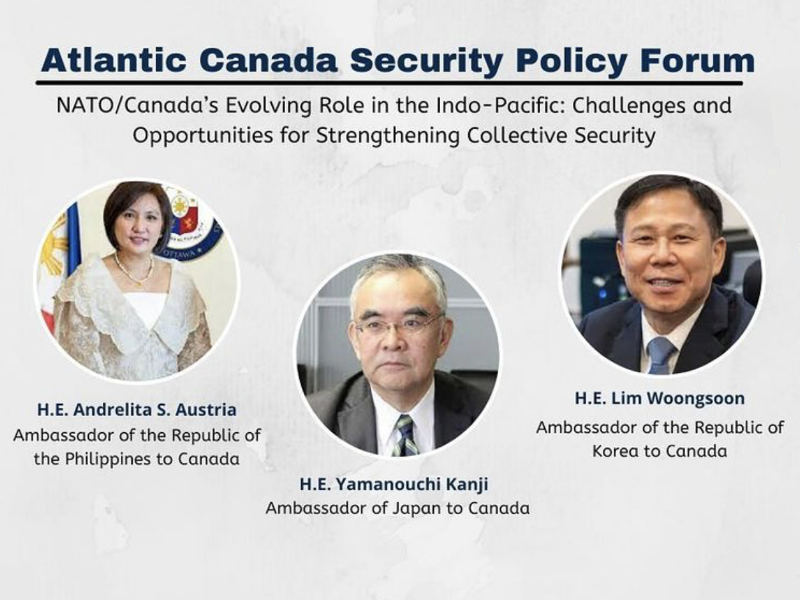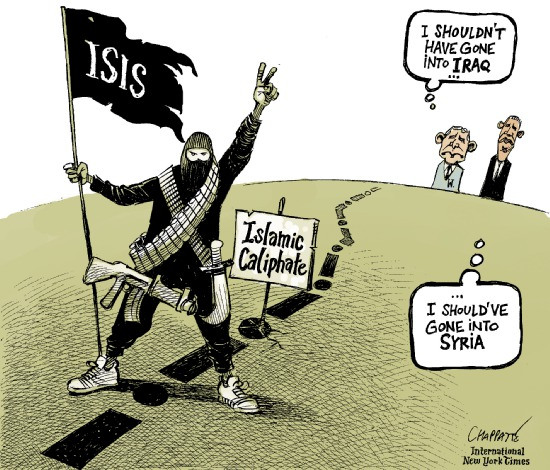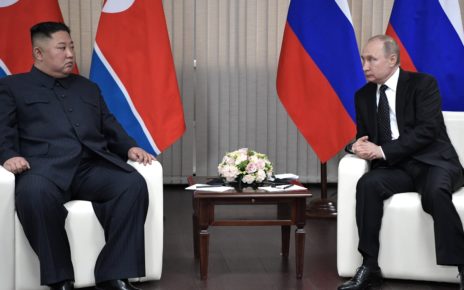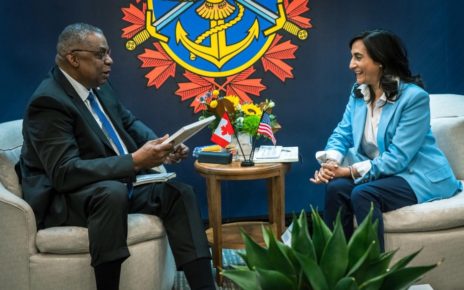You can listen to our recording of the event here.
The NATO Association of Canada, in partnership with student organizations based in Memorial University of Newfoundland, namely the Political Science Graduate Students’ Society (MUN PSGSS), Filipino Students’ Association (MUNFILSA), Women in Cybersecurity (WiCys) – MUN Chapter, and Youth Atlantic Treaty Association – North Atlantic Treaty Organization (YATA – NATO) – Newfoundland and Labrador Chapter, successfully launched the inaugural Atlantic Canada Security Policy Forum. This virtual platform aims to raise greater public awareness as regards the latest security developments in the Indo-Pacific region. It seeks to contribute in fostering discussions and debates in Canada on how best the NATO in general, and Canada in particular could deepen its ties with its existing regional partners in the Indo-Pacific, and hence, contribute towards the promotion of collective security and the preservation of the rules-based international order. The event was held on Friday, April 5, 2024 through Zoom, a day after the nationwide commemoration of NATO’s 75th Founding Anniversary.
In attendance were Mr. Robert Baines, President and CEO, Mr. Justin Michael James Dell, Editor-in-Chief, Mr. Mark Davis Madarang Pablo, Program Editor and Lead Project Coordinator, and Mr. Behzad Hakim, Engagement Relations Officer at the NATO Association of Canada. Also in attendance were Ms. Kathleen Katruskha Moreno, Vice President for Academics of MUN PSGSS, Ms. Irene Kim Abrogena, President of MUNFILSA, Dr. Jonathan Anderson, Advisor of Women in Cybersecurity (WiCys) – MUN Chapter, Mr. Mattias Vanderley, President of YATA – NATO Canada, and Mr. Spencer Carew, President of YATA – NATO Canada – Newfoundland and Labrador Chapter. The Organizing Committee was honoured and privileged to welcome the following Guest Speakers during the event: Her Excellency Andrelita Austria, Ambassador of the Republic of the Philippines to Canada, His Excellency Yamanouchi Kanji, Ambassador of Japan to Canada, and His Excellency Woongsoon Lim, Ambassador of the Republic of Korea to Canada.
Ambassador Austria discussed the latest developments on maritime security disputes in the West Philippine Sea. She discussed the strategic and economic values of the West Philippine Sea as the country’s Exclusive Economic Zone (EEZ) within the South China Sea—a critical waterway for 30% of global maritime trade and 40% of liquefied natural gas (LNG) shipments, and a resource-rich maritime zone that is said to contain 11 billion barrels of oil and 190 trillion cubic feet of natural gas. She also cited the recent provocative actions of China in violation of the Philippine maritime entitlements, and the strategic responses of the Philippine government, such as upholding the 2016 Arbitral Tribunal ruling which invalidates China’s nine-dashed line, and defending its sovereign rights in the hotly contested area, in accordance with the United Nations Convention on the Law of the Seas (UNCLOS).
Meanwhile, Ambassador Kanji tackled the emerging US-Japan-South Korea trilateral security partnership. He explained that Japan is currently embarking on a massive defence buildup, with the aim of increasing its defence spending to NATO’s standard of 2% of national GDP within the next five (5) years. Furthermore, he talked about the strategic areas of cooperation between US, Japan and South Korea, as discussed during the Camp David Summit in 2023, such as information sharing for the missile warning system, cybersecurity, economic security, and defence industrial cooperation. He also welcomed Canada’s Indo-Pacific Strategy, and acknowledged Canada’s contributions in enforcing maritime sanctions against North Korea during Operation Neon, and strengthening interoperability with the Japanese Maritime Self-Defence Force through Operation Kaedex.
Lastly, His Excellency Woongsoon Lim, Ambassador of the Republic of Korea to Canada, talked about South Korea’s evolving strategic environment, citing the following security challenges: North Korea’s nuclear weapons development program; Russia’s acts of violation of United Nations Security Council (UNSC) sanctions against North Korea, such as fuel and technology transfer in exchange of North Korea’s provision of ammunition and missiles to support Russia’s war in Ukraine; and increasing incidents of cyberattacks to South Korea’s civilian infrastructure mainly from North Korea, Russia, and China. After which, he discussed South Korea’s comprehensive strategy towards North Korea: Deterrence, Dissuasion, and Diplomacy (3D). Deterrence involves strengthening South Korea’s military capability. Dissuasion means enforcing the UNSC resolution. Diplomacy aims to persuade the North Korean leadership to return to the negotiating table and embark on the denuclearization of the Korean Peninsula.





